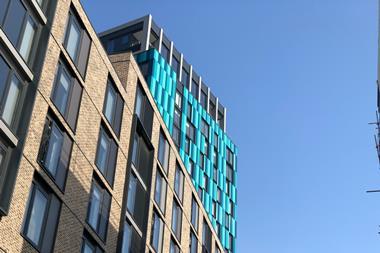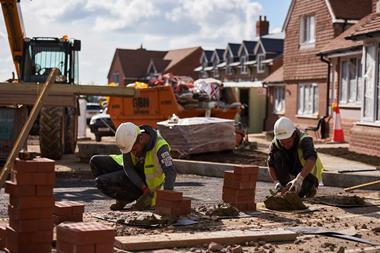If anyone was clinging to the hope that by now the government might be ready to turn its attention to something other than Brexit, it looks like we will all have to wait a bit longer.

However, for those of us involved in social housing, the continuing pressures cannot be ignored and addressing the housing crisis remains a burning issue on the public’s agenda.
Delivery of new-builds may have been up last year, but demand for housing still far outstrips supply. Help to Buy is due to end in 2021. Housing market conditions are sluggish and that leaves affordable housing supply exposed too, due to the reliance on section 106 agreements and housing association cross-subsidy models for delivery.
To help offset the weakness in a market overshadowed by the risk of a no-deal Brexit, London mayor Sadiq Khan has just announced an extra £200m of funding across the capital to ensure the continued building of affordable homes. The money is designed to give housing associations more flexibility. Eligible associations will be able to switch homes from market sale to shared ownership and to homes for rent at social or submarket levels. The support individual associations will receive depends on the schemes in their pipelines and those already under way and is only available for homes starting this calendar year.
It is a welcome boost, and any move that gives housing associations the ability to become more creative with diversity of tenure is surely a good thing.

However, the problem is national, and while the mayor’s money will help London, we desperately need to see similar investment replicated across the country so that housing associations can keep delivering to narrow the 60,000 shortfall in affordable homes each year.
The prospect of more grants coming from the government any time soon seems uncertain, although we remain hopeful. This should not stop housing associations increasing output if we get more creative with other sources of funding. One solution is to seek new strategic partnerships and more joint ventures to diversify income and share risks.
In a good example, Metropolitan Thames Valley Housing (MTVH) has this week exchanged contracts with ReSI for the sale of 132 new-build apartments in Clapham Park, Lambeth, at a value of £60m. What makes this notable is that as part of the deal, MTVH will retain management of the properties and ownership of the freehold. We’ll also act as agent for anyone wishing to sell their property.
“The prospect of more grants coming from government any time soon seems uncertain”
Clapham Park is one of our key urban regeneration projects, delivering 2,500 new homes, a community hub, a community centre and new shops. The capital from this sale will enable us to fund the next phase of affordable homes and services.
These 132 apartments were originally for market sale but ReSI intends to convert the one-, two- and three-bedroom units into shared-ownership homes, utilising government grant funding from the GLA’s Homes for Londoners programme. Shared ownership allows purchasers to buy at a much lower deposit requirement and with lower annual costs, making the units more affordable and allowing individuals and families, otherwise priced out of the market, to get on to the housing ladder.
It is a true partnership approach and a creative model we hope to see repeated.
Geeta Nanda is chief executive of MTVH
































No comments yet